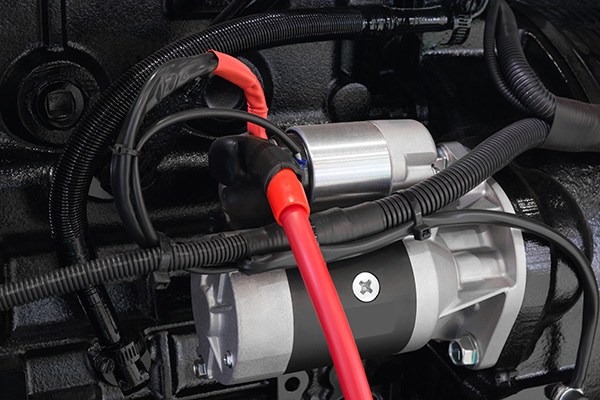
When you turn the key or press the start button, you anticipate your engine to roar to life. But if you hear clicking, grinding, or silence instead, your starter could be in trouble.
The starter motor gets your engine running, and when it begins to fail, it often gives subtle warnings before it stops working entirely.
Understanding these signs can save you from being stranded and help you avoid unnecessary repairs.
How the Starter Works
Your vehicle’s starter motor uses electrical power from the battery to crank the engine and start the combustion process. When you turn the key or push the button, the starter engages a gear that meshes with the engine’s flywheel, turning it just enough to begin running on its own.
Because the starter draws a large amount of current and uses moving parts under high load, it can wear out over time. Problems with the starter itself, the solenoid, or related wiring can all lead to difficulty starting the engine.
Common Signs of a Failing Starter
Starters rarely fail without warning. Instead, you’ll usually notice a series of symptoms that get worse over time:
Clicking Noises When Starting
If you hear rapid clicking when you turn the key, the starter may not be receiving enough power to engage properly. While this can also point to a weak battery, our technicians test both components to confirm the cause.
Grinding Sounds
A grinding noise when starting often means the starter gear isn’t engaging correctly with the flywheel. If ignored, it can damage both the starter and the flywheel teeth, leading to a more expensive repair.
Intermittent Starting Problems
Sometimes, a failing starter works occasionally and then refuses to engage the next time you try. This inconsistency can leave you stranded unexpectedly if not addressed early.
Dashboard Lights but No Engine Response
If your dashboard lights up normally but the engine doesn’t crank at all, it could indicate a starter issue rather than a dead battery.
Differentiating Starter Issues From Battery Problems
Because the starter and battery work closely together, it’s easy to confuse one problem for the other. A weak or dead battery can mimic many signs of starter failure. The key differences often come down to how your vehicle behaves:
- If jump-starting the car resolves the issue, the battery may be the problem.
- If the engine cranks slowly even with a strong battery, the starter is likely struggling.
- If the dash lights stay bright but the engine doesn’t turn over, that points more toward the starter than the battery.
Testing both components is the safest way to avoid replacing the wrong part.
Electrical Problems That Affect Starting
Sometimes the starter itself isn’t the culprit. Corroded battery terminals, damaged wiring, or a failing ignition switch can prevent the starter from receiving enough power. In other cases, a blown fuse or faulty relay interrupts the circuit.
Our technicians inspect the full starting system to ensure we find the real source of the problem rather than just replacing parts unnecessarily.
Why Acting Early Can Save You Money
Ignoring starter warning signs often leads to complete failure, which usually happens at the most inconvenient time. Being stuck with a car that won’t start is frustrating enough, but forcing a failing starter can also damage surrounding components like the flywheel, solenoid, or wiring.
Addressing the issue early lets us repair or replace the starter before it causes additional problems. Regular battery checks and electrical inspections can also catch minor issues before they become major repairs.
Keep Your Vehicle Starting Smoothly With H B Auto & AC
At H B Auto & AC in Huntington Beach, CA, our technicians specialize in diagnosing and repairing starting system issues. We test the starter, battery, wiring, and related components to identify the exact cause of the problem and fix it the right way. Whether you need a starter replacement, electrical repair, or preventive inspection, we’ll make sure your vehicle starts reliably every time.
Schedule your appointment today and get back on the road with confidence.